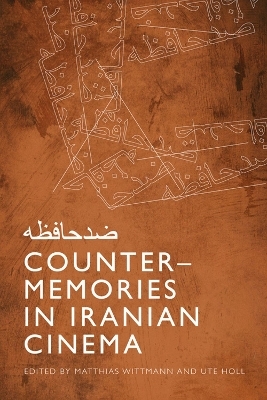
Counter-Memories in Iranian Cinema
Seiten
2021
Edinburgh University Press (Verlag)
978-1-4744-7975-2 (ISBN)
Edinburgh University Press (Verlag)
978-1-4744-7975-2 (ISBN)
Reassesses the post-revolutionary Iranian Cinema from a new mnemo-political perspective.
Far?d ad-D?n-e ?A???r's Persian folk tale The Conference of the Birds relates the quest by thousands of pilgrim birds for an ideal king, the mythical bird called S?morgh. At the end of the quest, the surviving birds recognise that the longed-for king is nothing other than the reflection of their own existence. But what about those other birds that were not able to become part of the final representation? This groundbreaking book calls them 'counter-memories'; memories that are barred from hegemonic history, but are, nevertheless present in cinematic forms. Due to the strategic and artistic interventions of a range of Iranian filmmakers, such as Abbas Kiarostami and Shahram Mokri, Ali Hatami and Tahmineh Milani, Kianoush Ayari and Rakshan Banietemad, the history of post-revolutionary Iranian Cinema is also structured by counter-memories, with the potential to destabilise officially fabricated success stories of revolution, war and sacred defence. Counter-Memories in Iranian Cinema establishes a new framework for understanding the tensions between censorship and resistance, helping to carve out resistant points of remembering both within and outside state-controlled cinema.
Far?d ad-D?n-e ?A???r's Persian folk tale The Conference of the Birds relates the quest by thousands of pilgrim birds for an ideal king, the mythical bird called S?morgh. At the end of the quest, the surviving birds recognise that the longed-for king is nothing other than the reflection of their own existence. But what about those other birds that were not able to become part of the final representation? This groundbreaking book calls them 'counter-memories'; memories that are barred from hegemonic history, but are, nevertheless present in cinematic forms. Due to the strategic and artistic interventions of a range of Iranian filmmakers, such as Abbas Kiarostami and Shahram Mokri, Ali Hatami and Tahmineh Milani, Kianoush Ayari and Rakshan Banietemad, the history of post-revolutionary Iranian Cinema is also structured by counter-memories, with the potential to destabilise officially fabricated success stories of revolution, war and sacred defence. Counter-Memories in Iranian Cinema establishes a new framework for understanding the tensions between censorship and resistance, helping to carve out resistant points of remembering both within and outside state-controlled cinema.
Matthias Wittmann, postdoctoral research assistant, University of Basel. Ute Holl, Professor, Basel University.
| Erscheinungsdatum | 01.11.2021 |
|---|---|
| Zusatzinfo | 30 B/W illustrations |
| Verlagsort | Edinburgh |
| Sprache | englisch |
| Maße | 156 x 234 mm |
| Themenwelt | Kunst / Musik / Theater ► Film / TV |
| Schulbuch / Wörterbuch ► Lexikon / Chroniken | |
| Sozialwissenschaften ► Kommunikation / Medien ► Medienwissenschaft | |
| ISBN-10 | 1-4744-7975-8 / 1474479758 |
| ISBN-13 | 978-1-4744-7975-2 / 9781474479752 |
| Zustand | Neuware |
| Haben Sie eine Frage zum Produkt? |
Mehr entdecken
aus dem Bereich
aus dem Bereich
wie KI und virtuelle Welten von uns Besitz ergreifen – und die …
Buch | Hardcover (2023)
Heyne (Verlag)
CHF 29,90
eine jüdische Filmgeschichte der Bundesrepublik
Buch | Hardcover (2023)
Hanser (Verlag)
CHF 39,20


